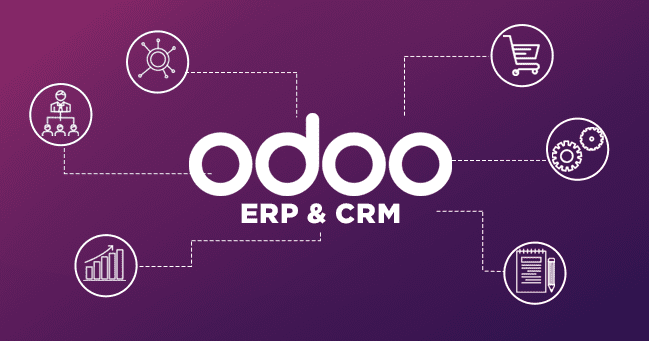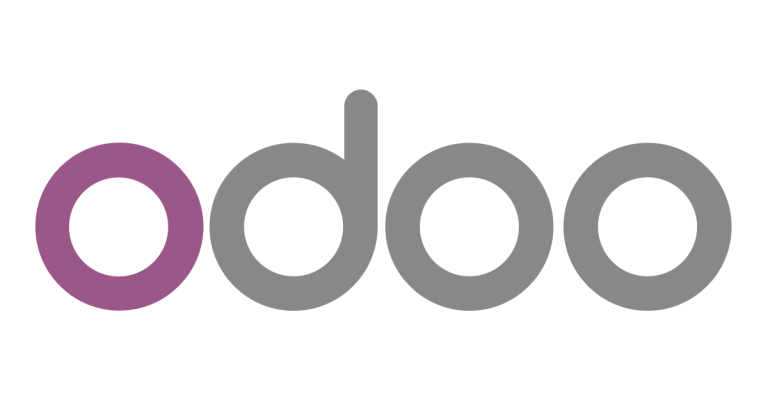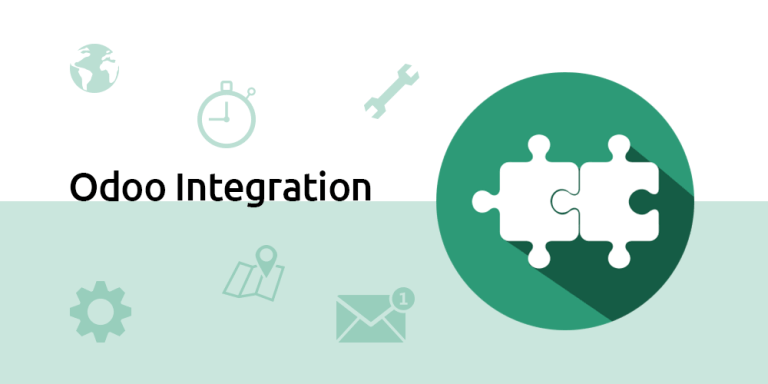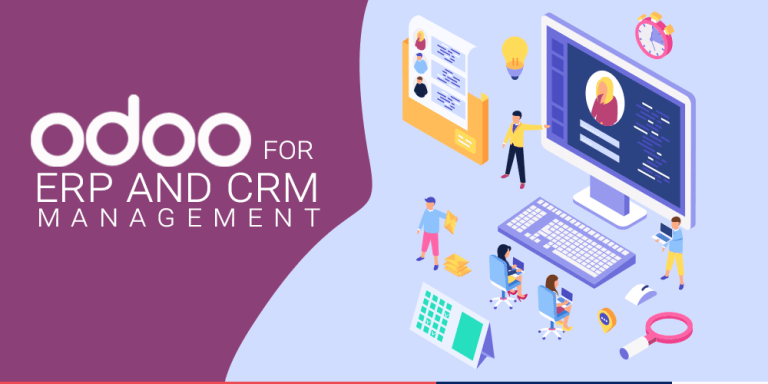Best Odoo ERP in Kuwait

Where Odoo is Used?
Enterprise resource planning can be done using a flexible and modular platform called Odoo. The platform provides a wide range of modules and applications for corporate management.
These tools aid business owners in increasing productivity. They can also acclimate to enterprise resource planning’s standardized procedures at the same time.
- 1. A platform that offers numerous apps.
- 2. Certain features can be changed.
- 3. Management of data via the cloud.
- 4. Receptive platform
- 5. Tools that integrate the backend and front end
To understand what Odoo is, users must first become familiar with its features. To familiarise themselves with the platform’s tools, apps, and functionalities, users can experience the Odoo demo.
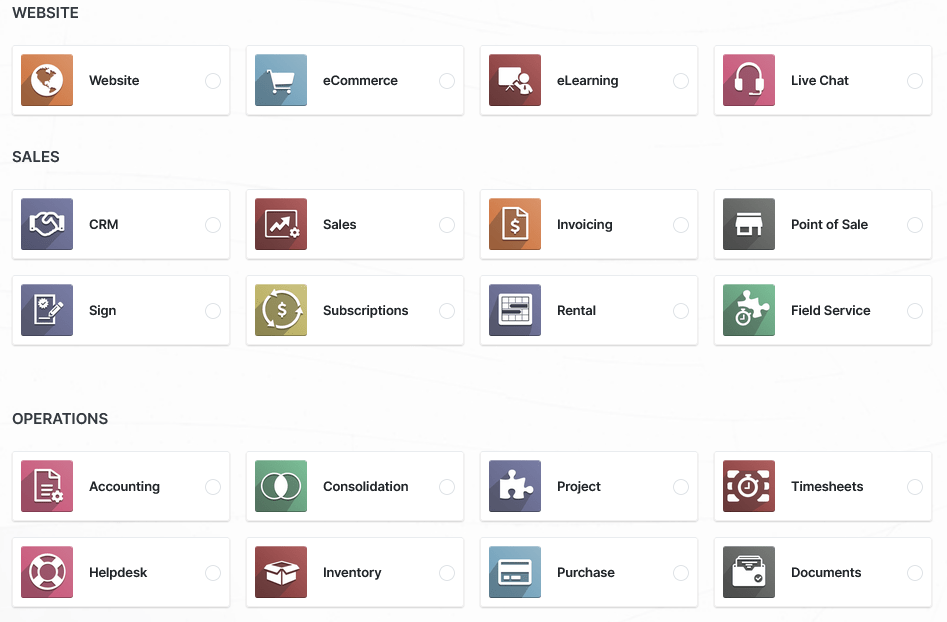
Modular Structure
Odoo is an ERP platform with a modular design that offers a wide range of tools and applications. The platform includes a collection of many modules, including those for production, sales, marketing, and customer relationship management.
The modular system's best feature is that businesses can merge modules in accordance with their organizational needs. Businesses can manage their human resources, for instance, by integrating modules for time off, timesheets, payroll, hiring, attendance, and many other things.
In order to comprehend contemporary business requirements and provide new functionality to the modules, Odoo has a dedicated development team. Nevertheless, new modules are introduced to the platform to improve it and give consumers high productivity.
Versatility
Odoo's open-source architecture provides exceptional flexibility, which enables organizations to adapt the platform to their needs. Applications and modules for Odoo are customized to meet user needs. Any software developer can access the platform's source code and modify the tools to suit their needs because it is an open-source platform.Scalability
Since the platform is scalable, Odoo ERP is appropriate for both small and large businesses. Businesses can scale the data server based on the volume of data. As a result, using this platform to manage ERP chores for organizations becomes cost-effective. In contrast, scalability enables firms to add data server space as necessary, depending on their needs. Users can contact Odoo support to get advice on scalability by calling them.Industry-Specific Tools
Odoo provides a variety of applications, modules, and tools. As a result, many sectors can easily use this platform to run their enterprise resource planning. Applications and tools tailored to your sector are available. Depending on the requirements particular to your industry, you can combine various modules.Hassle-free Integration
Odoo makes it simple to integrate different modules. Users can quickly incorporate apps into the modules after integrating all of the modules. The platform offers a wide range of task management apps tailored to specific industries. Users can also incorporate other third-party programs into the system to carry out different tasks.A Decent Interface
Given its user-friendly design, Odoo is increasingly popular among small and medium-sized businesses. Access to several themes and templates is provided through the platform's straightforward interface. The ERP platform allows users to access numerous data and reports in a list, pivot, and graphic perspectives. Additionally, users can alter the appearance of the interface by downloading different templates and themes.Arrays of Applications
The platform is appropriate for many industry-specific usages due to the availability of several Odoo apps. The platform's partners and community routinely make contributions to raising the application's effectiveness or productivity.
More than ten thousand applications are currently available to users of Odoo. The platform is also compatible with a wide variety of third-party applications. The platform adds ten to twelve applications on average each day. Users now have more applications at their disposal to manage key organizational functions.
Frequently Updated Versions
You will get continuous upgrades and apps for the platform thanks to the growing Odoo community. To date, 14 versions of Odoo have been published to accommodate changing business needs. New modules and features have been included in the system with a new version. Odoo often incorporates user feedback to enhance certain features for a better user experience. Additionally, the Odoo support crew is proactive in locating faults and flaws and swiftly removing them from the system.Pros and Cons of Using Odoo ERP
It’s time to look at the benefits and drawbacks of Odoo ERP. Without knowing the advantages and drawbacks of the platform, the review will stay unfinished.
These tools aid business owners in increasing productivity. They can also acclimate to enterprise resource planning’s standardized procedures at the same time.

PROS
- Architecture based on extensible modules.
- A free version without a license is offered.
- A vibrant and vibrant open-source community.
- A committed staff for customer service.
- Over 14000 applications, to be exact.
- Compatibility with third-party application integration.
- A platform that is mobile-friendly or responsive.
- The highly secure cloud hosting server.
CONS
- The customer support crew only works during the week.
- The speed of customer help is poor.
- The difficult-to-maintain community version without a license.
- There are no special offers for small and large businesses.
Why Odoo ERP is an Excellent Choice for Companies

In today’s competitive market, business owners are continuously looking for ways to streamline their operational procedures. For a company to function effectively, all of its departments must work together. This could entail a range of tasks completed by numerous people at numerous locations. For various departments to work together as a team and achieve the intended results, coordination between them is essential. This coordination involves complex business processes.
They select ERP systems in order to compete fiercely with rivals and stay competitive.
Everyone looks for the least complicated ERP software system, despite the fact that there are numerous variations available on the market. One of the most popular and user-friendly ERP software systems is without a doubt the Odoo ERP System.
Enterprise Resource Planning (ERP) is a type of business process management software that provides integrated solutions with a variety of apps to help & automate corporate operations.
A capable ERP helps with task coordination, increases workplace efficiency, and guarantees smooth operation, all of which are important for the success of the company.
Customer contact management and point of sale are only two of the features that Odoo offers. At SMB Solutions, we offer a potent Solution developed by professionals with experience in ERP deployments in many fields to ensure that our clients are making the most of all important Odoo apps and help in enhancing productivity. Odoo has all the features a business might need.

Odoo ERP FAQs
Odoo ERP is a comprehensive company management tool that offers integrated applications to handle a range of corporate processes, including accounting, inventory, sales, procurement, and project management.
Businesses in Kuwait and the UAE may use Odoo ERP to benefit from higher productivity, cost savings, faster workflows, real-time data access, and better decision-making.
Odoo CRM is a customer relationship management software that allows businesses to manage and analyze customer interactions and data throughout the customer lifecycle. It works by capturing leads, tracking opportunities, and managing customer communications.
Businesses may profit from implementing Odoo CRM by having better customer relationship management, more sales, greater customer insights, and more efficient sales procedures.
Yes, Odoo CRM can be used without Odoo ERP as a standalone software.
Odoo accounting is a financial management software that helps businesses manage their financial transactions, generate financial reports, and manage taxes. It is different from other accounting software in that it is fully integrated with other business management modules.
Yes, Odoo accounting can be customized to meet the specific needs of businesses.
Yes, Odoo accounting is compliant with Kuwait and UAE tax regulations.
A business management tool called an Odoo ERP system aids in the automation and streamlining of activities. Businesses may benefit from it by getting real-time data insights, automating processes, increasing productivity, and cutting expenses.
Odoo ERP system can integrate with other software applications through its APIs and connectors.
Yes, Odoo ERP system is scalable and can accommodate the growth of businesses.
Odoo integration is the process of connecting Odoo ERP with other software applications to create a seamless flow of data between them.
Yes, Odoo ERP can be integrated with existing software applications.
No, Odoo integration is not difficult to set up, and it can be done easily using Odoo’s APIs and connectors.
Odoo implementation involves the process of installing and configuring the Odoo ERP system to suit the specific needs of businesses.
Yes, Odoo implementation can be done remotely, or it can require onsite presence depending on the business requirements.
The time required to deploy Odoo ERP depends on the complexity of the business needs and might range from a few weeks to a few months.
The price of implementing Odoo varies from company to company and is based on the scope and complexity of the project.
Yes, Odoo offers training and support for its ERP system through its community and partners.
Odoo ERP is a secure system that provides various security measures to protect business data.
Yes, Odoo ERP can be accessed from mobile devices through its mobile app.
The size and complexity of the business needs, which might vary from business to business, determine the system requirements for running Odoo ERP.
Yes, there is a trial version of Odoo ERP available for businesses to test its functionalities before purchasing it.
The pricing structure for Odoo ERP depends on the number of users and modules required by businesses.
When it comes to features, usability, and cost, Odoo ERP outperforms other ERP systems on the market.
Yes, because to its modular structure and accessibility of a wide range of third-party apps, Odoo ERP can be tailored to meet the unique demands of your company. Additionally, because Odoo is open-source, programmers may tweak its source code to suit your needs.
Odoo ERP has multi-language and multi-currency capability, making it perfect for enterprises that operate in many countries and have clients or suppliers from various cultural backgrounds. The system’s multi-language support implies that it can be translated into many languages, and its multi-currency support allows users to conduct financial transactions in various currencies.
There are several support options available for Odoo ERP, including community support, enterprise support, and partner support. Community support is available through the Odoo community forum, while enterprise support is offered by Odoo SA, the company behind Odoo ERP. Partner support is provided by Odoo’s network of certified partners, who offer a range of services, including consulting, customization, implementation, and training.
The manufacturing, retail, e-commerce, healthcare, construction, and professional services sectors can all use the adaptable and configurable Odoo ERP system. Industries including commerce, logistics, retail, and manufacturing in Kuwait and the UAE could profit from Odoo ERP’s features and functionalities. To ascertain whether Odoo ERP is a good fit for your company, you must assess your business needs and speak with an Odoo partner.
Odoo Blogs
How to differentiate Project and Product based Odoo ERP Implementation Services
Software for enterprise resource planning (ERP) enables businesses to manage...
Read MoreWhy SMB Solutions Can Be Your Best Odoo Partner?
The most crucial step in an ERP installation project is...
Read MoreWhy Are Businesses Moving to Odoo From SAP?
Systems for enterprise resource planning (ERP) have grown to be...
Read MoreHow Odoo Integration Can Work For You And Help Your Company Grow
Odoo is a SaaS (Software as a Service) product. An...
Read MoreHow Will Distributors Succeed With Cloud-Based Odoo ERP?
Odoo is a comprehensive, open-source, user-friendly ERP system that gives...
Read MoreHow Odoo Integration Can Work For You and Help Your Company Grow
Odoo is a SaaS (Software as a Service) product. An...
Read More
